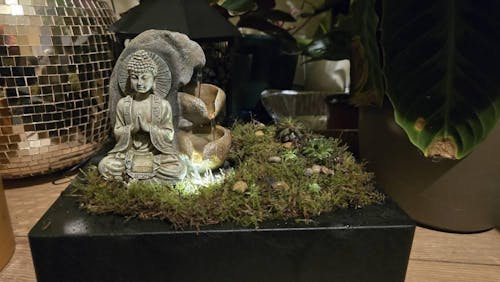This tiny succulent looks fierce with its toothed leaves opening like the jaws of a big cat. In its natural habitat in South Africa, it blooms in autumn, producing bright yellow blooms. Slow growing, this plant can reach a maximum height of 6" (15cm), as its leaves get longer and each pair of leaves sprouts more pairs from its centre. Give these plants plenty of bright light and not too much water and they will thank you with healthy, toothy foliage grins!
Scientific Name
Faucaria tigrina (tiger-toothed throat plant)
Common Name
Tiger Jaws, Shark Jaws
Origin
This plant only grows in the southern Cape provinces of South Africa in the wild
Light
This plant loves bright light and will thrive with a few hours of direct light each day- a south or west facing window will help it get the most of its sun in the UK!
Water
Make sure all the soil on your Tiger Jaws succulent dries out before you water it again. You can test this with a wooden skewer or similar; and be aware it will need less frequent watering in winter!
Humidity
This plant is adapted to low humidity, so most household locations will be fine. Make sure it's not somewhere too damp/soggy, and not too near an operating radiator.
Soil
Use a well-draining soil mix; one with added sand and grit, or one designed for cacti and succulents will work well here. Repot every 3-4 years in spring as the plant grows.
Food
Fertilise every two months in the growing season, reduce to every three in autumn and winter. Use a feed designed for cacti, or dilute your usual houseplant feed, for best results.
Temperature
This plant can stand a large range of temperatures as long as it stays dry. In summer, it will love temperatures from 20-32°C, and in winter can stand temperatures down to 5°C. A cooler winter will also help it grow better the following summer!
Pet-safe
Yes, but too much nibbling won't be good for pets, small humans or the plant!
Sprouts Top Tips
Allowing your Faucaria to have a dormancy period, with less water and food, and lower temperatures, will help it to grow better when it warms up again. Use the winter as an opportunity to help your plant recharge!















![The 'Hot Toddy' Fresh Foliage Christmas Wreath [Made to Order]](https://cdn.shopify.com/s/files/1/0490/2774/3905/products/the-hot-toddy-fresh-foliage-christmas-wreath-240111_500x500.jpg?v=1637626402)


















